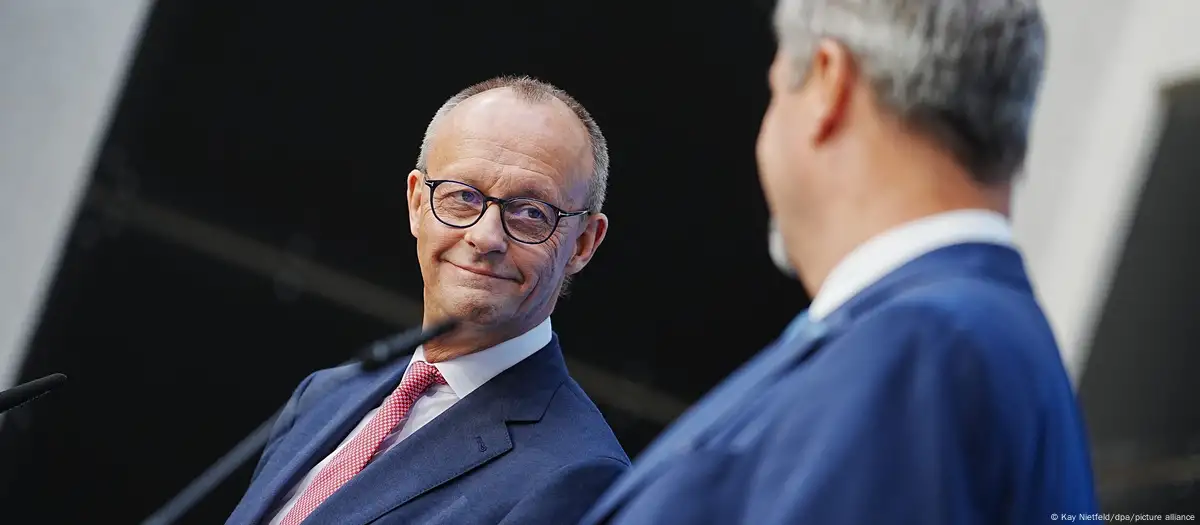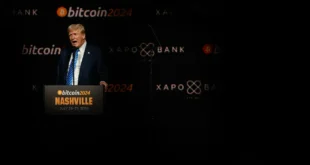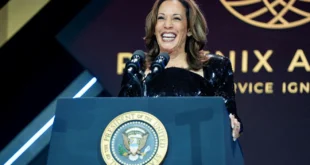
In a dramatic development in German politics, Friedrich Merz, the prominent conservative leader and head of the Christian Democratic Union (CDU), has announced his candidacy for Chancellor. This announcement has set the stage for a pivotal election and could reshape Germany’s political landscape. Merz, known for his business acumen and strong conservative stance, represents a significant shift in the CDU’s strategy as it seeks to regain its dominance in German politics.
Background on Friedrich Merz
Friedrich Merz, a veteran politician and influential figure in German conservative circles, has a long history in politics and business. Born on November 11, 1955, in Brilon, North Rhine-Westphalia, Merz pursued a career in law before transitioning into politics. He first entered the Bundestag, Germany’s federal parliament, in 1994, where he served until 2009. During his time in office, he was known for his strong advocacy of free-market principles and fiscal conservatism.
After leaving active politics, Merz built a successful career in the private sector, including roles in various companies and financial institutions. His return to politics in 2018, when he sought to lead the CDU, marked a significant moment for the party. Despite losing the leadership race to Annegret Kramp-Karrenbauer, Merz’s influence continued to grow. In 2021, he was elected CDU chairman, rejuvenating the party with his conservative vision and strong leadership.
The Political Landscape
Germany has been navigating a complex political landscape in recent years, with the CDU facing challenges both internally and externally. The party, historically a dominant force in German politics, has been struggling to maintain its relevance and electoral success. The departure of longtime Chancellor Angela Merkel in 2021 left a leadership vacuum that the CDU has been working to fill.
The 2021 federal election marked a turning point for the CDU. Merkel’s successor, Armin Laschet, struggled to connect with voters and failed to secure a convincing victory for the CDU, which resulted in the formation of a coalition government led by the Social Democratic Party (SPD) under Chancellor Olaf Scholz. The CDU’s loss was seen as a reflection of its waning influence and the need for a new direction.
Merz’s candidacy for Chancellor is seen as an attempt to revitalize the CDU and reposition it as a strong alternative to the current government. His leadership is expected to focus on addressing key issues such as economic recovery, security, and immigration—areas where he has historically been vocal and influential.
Merz’s Campaign Platform
Friedrich Merz’s campaign platform reflects his conservative values and priorities. At the core of his platform is a commitment to economic growth and fiscal responsibility. Merz has been a staunch advocate of reducing government spending, implementing tax cuts, and promoting free-market policies. He argues that these measures are crucial for stimulating economic recovery and ensuring Germany’s long-term prosperity.
In addition to economic issues, Merz’s campaign emphasizes strengthening Germany’s security and defense capabilities. He has called for increased investment in the military and a robust approach to dealing with international security threats. Merz’s stance on security aligns with his broader view of a strong, assertive Germany on the global stage.
Another key aspect of Merz’s campaign is his approach to immigration and integration. He has advocated for stricter immigration controls and a more rigorous approach to integrating newcomers into German society. This position reflects his broader conservative stance on maintaining national identity and cultural cohesion.
Merz’s campaign also focuses on reforming Germany’s political and administrative systems. He has proposed measures to streamline government operations, reduce bureaucracy, and enhance transparency. These reforms are aimed at improving the efficiency and effectiveness of government institutions, which Merz believes will contribute to better governance and public trust.
Challenges and Opportunities
Merz’s bid for Chancellor is not without its challenges. One of the primary hurdles is overcoming the internal divisions within the CDU. The party has experienced significant factionalism and discord in recent years, with different wings of the party holding varying views on policy and leadership. Merz will need to navigate these internal dynamics and build a unified front to present a strong challenge to the current government.
Additionally, Merz faces the challenge of appealing to a broad spectrum of voters. While his conservative platform resonates with many traditional CDU supporters, he will need to address the concerns of centrist and undecided voters to build a winning coalition. This involves balancing his conservative principles with pragmatic policies that address the diverse needs and concerns of the German electorate.
The current political climate presents both opportunities and obstacles for Merz. The CDU’s loss in the 2021 federal election and the challenges faced by the current coalition government provide an opening for Merz to position himself as a credible alternative. However, he will need to demonstrate his ability to effectively lead the CDU and present a compelling vision for Germany’s future to capitalize on this opportunity.
The Path Ahead
As Friedrich Merz embarks on his campaign for Chancellor, he faces a critical period of intense scrutiny and competition. His leadership will be tested as he navigates the complexities of German politics, addresses the key issues facing the country, and seeks to unite the CDU behind his vision.
Merz’s candidacy represents a significant moment for the CDU and German politics as a whole. His return to prominence and bid for Chancellor signal a renewed effort by the CDU to reclaim its position as a major political force. Whether he can successfully leverage his conservative platform, address the challenges facing the country, and appeal to a broad electorate will determine the success of his campaign and the future direction of German politics.
The upcoming election will be a defining moment for both Friedrich Merz and the CDU, as well as for Germany as a whole. The stakes are high, and the outcome will have far-reaching implications for the country’s political landscape and its trajectory in the years to come.


